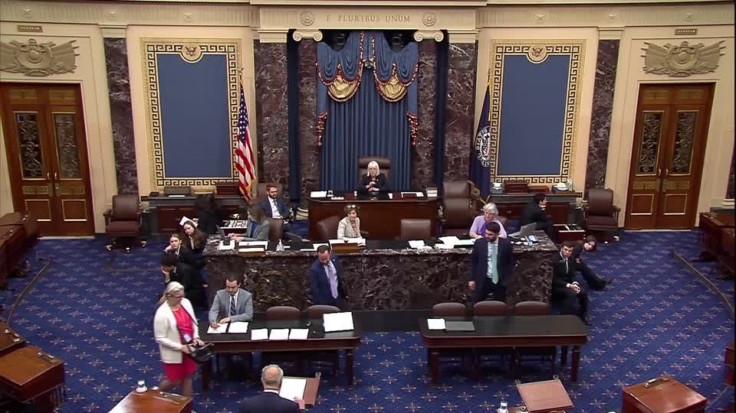US Senate Passes Debt Ceiling Bill, Averting Catastrophic Default
KEY POINTS
- Senate passed the bill on 63 to 36 votes
- Senators raced through 11 amendment votes to get to the final vote
- The U.S. would have defaulted on its debts by June 5 if the bill had not passed
The U.S. Congress averted a catastrophic debt default by the country, with the Senate passing the bill late Thursday evening and sending it to President Joe Biden's desk.
The bill was passed on 63 to 36 votes.
The House passed the bill Wednesday with bipartisan support, following an agreement reached between Speaker Kevin McCarthy, R-Calif., and Biden. The bill suspends the debt limit through Jan. 1, 2025, caps non-defense spending, claws back some unused COVID-19 funds and expands work requirements for some food stamp recipients.
Treasury Secretary Janet Yellen had earlier warned the U.S. could run out of cash to pay its bills by June 5, which would have been catastrophic for the U.S. and the global economy.
PASSED by a vote of 63-36: H.R.3746, A bill to provide for a responsible increase to the debt ceiling.
— Senate Periodicals (@SenatePPG) June 2, 2023
Senators raced through 11 amendment votes ahead of the bill's passage but all of them failed.
"This debt ceiling deal does nothing to limit the Senate's ability to appropriate emergency supplemental fund to ensure our military capabilities are sufficient to deter China, Russia and other adversaries," Senate Majority Leader Chuck Schumer, D-N.Y., announced on the Senate floor to assuage concerns from members about defense spending.
The HR 3746 (an Act to provide for a responsible increase to the debt ceiling) needed 60 "yes" votes to pass.

© Copyright IBTimes 2024. All rights reserved.





















